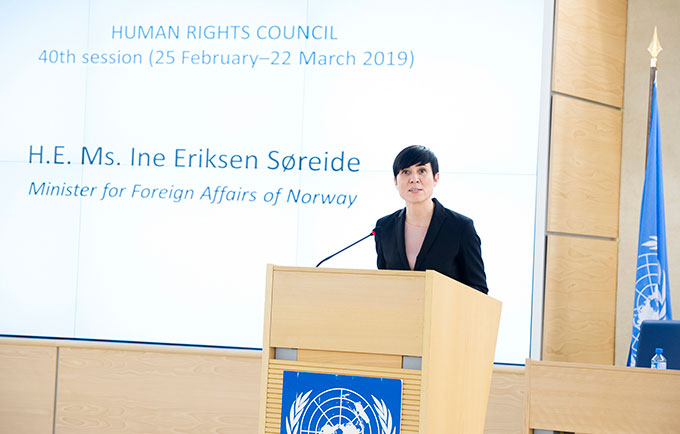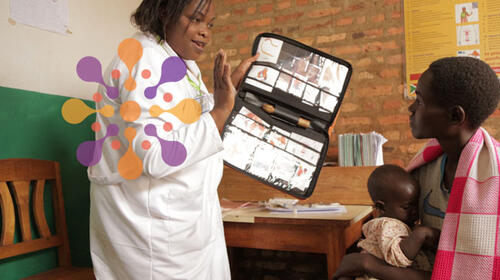Updates
ICPD25: Gender equality needed for “unlocking the full potential of a country”
26 Feb 2019"I saw embarrassment on my mother’s face when I asked her questions regarding sexuality and relationships with boys," said Cecile Nshimirimana*, a student in Burundi’s capital, Bujumbura.
Without information or services to protect herself from an unintended pregnancy, she ended up pregnant – over and over again.
"Some days, I think of how I could have avoided getting pregnant again and again, if only I had the information and the means necessary to protect myself.”
Girls who find themselves unmarried and pregnant are often compelled to drop out of school or marry early, even if underage. Or, if they are like Ms. Nshimirimana, they may resort to an unsafe abortion.
“I was afraid for my life when [on one occasion] it was dark and the doctor had only two candles to light [the room],” she recalled.
Gender equality for a better future
No woman or girl should risk her life in pursuit of her future.
Gender equality is about unlocking the full potential of a country, but gender equality is also a human right,” Ine Eriksen Søreide, the Norwegian Minister of Foreign Affairs, said yesterday in a statement at the Human Rights Council.

ICPD. UN Photo by Violaine Martin
Twenty-five years ago, 179 governments agreed on this. At the 1994 International Conference on Population and Development (ICPD), world leaders agreed that human rights and women’s rights – in particular, the right to make one’s own choices about reproduction – are essential not only for individual well-being but also for the welfare of communities, economies, countries and the world.
Yet too often, these rights are not being realized. Over 200 million women in developing countries want to avoid pregnancy, yet are not using safe and reliable family planning methods. Millions of girls like Ms. Nshimirimana end up pregnant. Some are married off as child brides. Others become single teen mothers. Still others face the dangers of unsafe abortion – one of the leading causes of maternal death.
These costs have exacted a terrible cost on society. Communities and countries are missing out on the labour and ingenuity of whole generations of women and girls.
To secure sustainable development, the world must secure gender equality and all the rights it entails, including the right to freely decide on one’s reproductive future.
“Unlocking the full potential of a country”
“Gender equality is about unlocking the full potential of a country, but gender equality is also a human right,” Ine Eriksen Søreide, the Norwegian Minister of Foreign Affairs, said yesterday in a statement at the Human Rights Council.
“It includes the rights to participate in society, education and work, to be able to choose a life partner, and to choose when or if to have children.”
This year, as the world observes the 25th anniversary of the ICPD, the international community is mobilizing to recommit to its Programme of Action.
“It was a ground-breaking document in 1994, and it still is today,” Ms. Søreide said.
In November, world leaders, civil society, women's groups and others will again convene at a high-level summit in Nairobi, to carve a new path forward to secure these rights for all.
Giving young people the power
Today, Ms. Nshimirimana is a member of the Kamenge Youth Centre, a UNFPA-sponsored centre where young people can learn about their sexual and reproductive health and receive referrals to adolescent-friendly health services.
She is calling for everyone – parents, leaders, young people – to address these issues without shame.
"How can we adopt responsible behaviour regarding sexuality if no one, not even our parents, can discuss it openly with us?”
* Name changed to protect privacy
